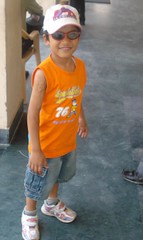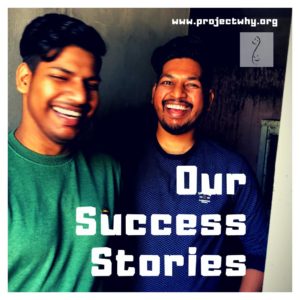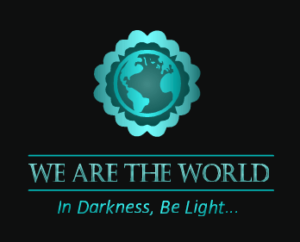 Had Popples not come into my life, Dear Popples would never have seen the light of day. The young man you see in the picture look nothing like the bundle swathed in bandages, his huge eyes filled in pain who walked into my heart on a March morning in 2002. This one looks more like the pasha – read hero – he wants to be.
Had Popples not come into my life, Dear Popples would never have seen the light of day. The young man you see in the picture look nothing like the bundle swathed in bandages, his huge eyes filled in pain who walked into my heart on a March morning in 2002. This one looks more like the pasha – read hero – he wants to be.
Yet Popples changed my life in more ways than one. He taught me hope, love in its purest form, survival no matter how dark the hole you are in is, but above all he became the mirror that showed me who I was, what I had become, and how I could change with time.
Popples makes dreams come true, even very old ones, those you have forgotten or even relegated to some dark recess of your mind as they seem ludicrous and even absurd.
I must have been 15 or or so when I first read Bonjour Tristesse, by Francoise Sagan and as luck would have it I read it sitting on the terrace of a Latin Quarter in Paris. The book not only had the kind of story that would make any young girl swoon, but was written when the author was 17 and has failed her end of school exam. That was the time I think I first dreamt of writing a book!
But books need stories, the kind that wrench your heart and soul, the kind that ring true, the kind that touch others and my life seemed dull and almost jaded. And whatever creativity a young mind could have had, was quickly silenced by the monotony of life.
But dreams do not die. They just wait patiently for the right moment to resurface, even if the right moment is light years ahead. Popples was the catalyst that brought the discarded dream back to life.
My publishers have categorized it as fiction: inspirational and I am deeply grateful for dreams belong to that realm, or do they? I think Abhigyan and Mrinal have put in words as only they can, what I have always felf but never been able to say:
To accept the real is not to accept that it is perfect. Reality is like clay. It is the starting point and not the end of things. At the beginning of the race all runners are at zero. Reality. One goes on to win. He changes reality. Shapes reality. Those who fail – accept that reality and start again on a fresh race. Everyone is back on the starting block. Reality waits to be shaped again. The race is long. And it is continuous. Every moment reality awaits our turn to shape it. To deny it is to escape into wishful inaction. To simply accept it is to stay at the starting block forever. Only way forward is to run.
When our stories become ordinary and the ordinary becomes a virtue; then virtue itself becomes ordinary and the only extraordinary thing left is murder and mayhem. For it is easy to ignore daily goodness like helping someone cross the street but crushing someone on the same street under speeding wheels is bound to generate more interest. At least in these cynical times. Which is why it is the job of stories to exemplify and exaggerate goodness.
Goodness is not sticky when it is mundane. Murder is.
If we want a society of goodness, kindness, compassion, courage and excellence we must tell stories of extraordinary goodness, compassion and excellence. And the extraordinarily good, kind, compassionate and courageous is called a hero.
We are all ordinary but it is the stories of our heroes that inspire us to rise above the ordinary when the moment demands. Without heroes, with the ordinary grey protagonist, all we find are echoes of our own fallible, flawed selves and when the moment calls – the hero within us fails to stir because all he has experienced in life as well as imagination are defeat, despair, fallibility and flaws. When the forces of murder and mayhem confront us in their dark, blacker than Black colour, we are choked in our throats with grey balls of fear and apprehension while the white light of courage and conviction ebbs away from our heart like the blood from our veins.
There are no heroes in life when there are no heroes in our stories.
For life is a story. The story!
Anouradha & Popples’ is an extraordinary story. More so because they have lived it.
Abhigyan and Mrinal Jha





I would have liked to type the more natural two words that came out of my lips when I read this but suffice to say, in hope that this version will not get censured out, ‘frigging hell’!
What a passage from Abhigyan and Mrinal…what a passage…I stand up (I actually stood up at my table at home when typing this) and applaud….
And I applaud you Anou, this time for that fantastic reminder, via this post, of two things
One – dreams are forever.
Two – and this is something that people on writing forums or writing school will NEVER understand. There is a simplicity and humility in it that is so counterintuitive to the confused erudition of writing schools/forums that the two are beginning to seem mutually exclusive to me now. And that simplicity is the simple fact that you thought of writing at the age of 15 but didn’t end up writing till now simply because nothign wrenched your heart….another standnig ovation Anou…small clap but I did stand up again….there is no book without a story.
Let me try to say that line again
“there is no book with a story”
heck even the second time around it sounds simple..and right…
why don’t the geniuses at writing school get it?
You know … i couldnt care less…i am VERY proud to read that you wanted to write a book at the age of 15 but didn’t write till somethign gripped you…
Bless,
Me
This is just great! Congratulations :).
dear anil
I am left speechless
what can i say.. you said it all
anou